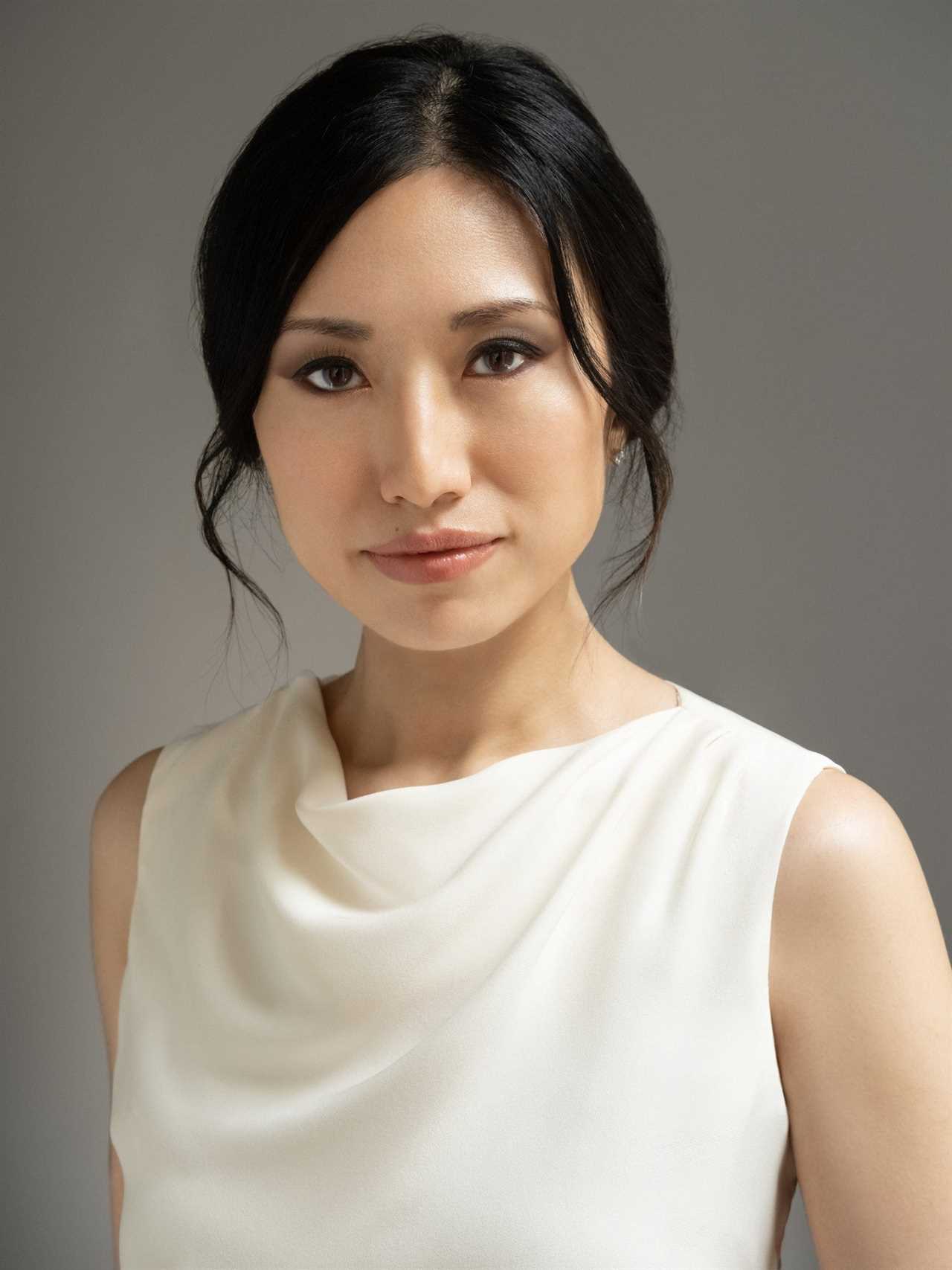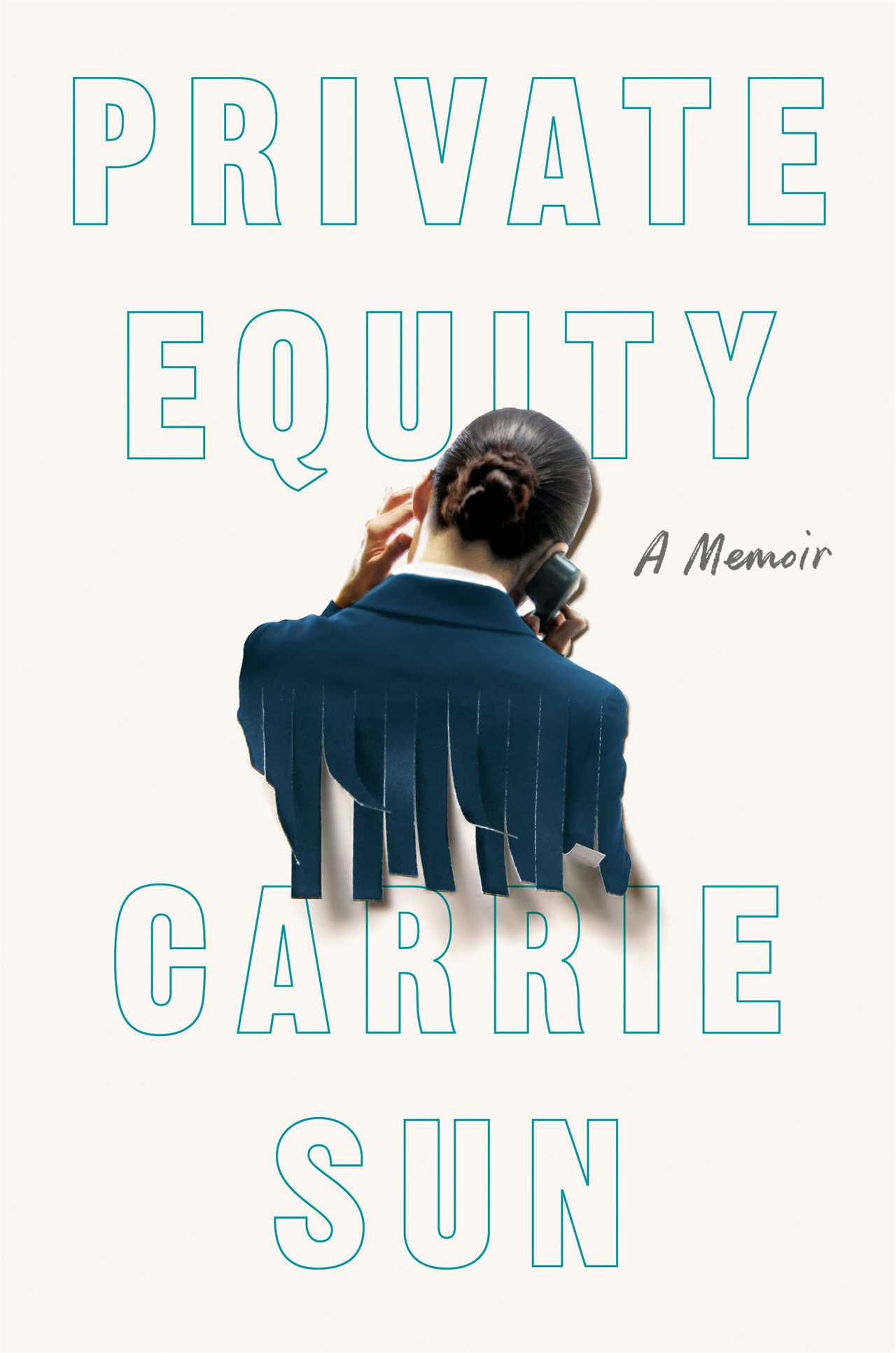Holloway/Getty, andresr/Getty, Robert Nickelsberg/Getty, Alix Minde/PhotoAlto/Getty, moodboard/Getty, © Marco Bottigelli/Getty, Tyler Le/Insider
- Carrie Sun was the personal assistant to a billionaire founder of a top Wall Street hedge fund.
- She describes the high-stakes, wealthy world of investment in her new memoir "Private Equity."
- In this excerpt, Sun shares how securing an interview was rigorous, including 10 personal reference calls.
Carrie Sun is an MIT graduate and holds an MFA from the New School. She has written a memoir about working for a secretive and wildly prestigious Wall Street hedge fund.
As the personal assistant to the firm's CEO, Sun threw herself into a world of extreme wealth and power, only to be nearly swallowed whole by long hours and intense workloads. The following excerpt reveals the rigorous process Sun went through to secure an interview at the firm. The names of the CEO and the fund given here are both pseudonyms.

Beowulf Sheehan
Yuna called me immediately after she got off the phone with Boone. "God, Carrie," she said. "I was so nervous, the first thing I said was 'I can't believe I'm speaking to a billionaire!'"
I had prepped her, of course. Yuna was my best friend from Michigan, from the part of the Mitten where P. F. Chang's was a hot spot and going to Meijer was a pastime.
After high school, I went out east; Yuna enrolled at a local community college and dipped in and out of jobs. She had finally achieved her dream of leaving Michigan, working as a field test engineer for Samsung in Kansas, when I asked her to be a personal reference for my interview process with Boone. She was the last of his calls, of which there were 10.
Eighteen days earlier, I had gone to meet with a head-hunter in Midtown. Peter specialized in support roles for boldface names. His team placed candidates in positions from receptionists to chiefs of staff at major firms in finance, real estate, media, and other industries.
He and I went over my background again and again. "You're a superstar. But," he stressed in his British accent, "everyone will ask you why a math and finance dual degree from MIT, who graduated in three years, wants to be an assistant."
I looked out the window of that small, sterile room and wished the air conditioning would work a lot harder.
Three years before this, I had dropped out of an MBA program because I felt restless with the conviction that I had been wasting my life. I wanted to change paths. So, I enrolled as a non-degree student at various universities and cobbled together a liberal arts education by taking classes in the humanities.
When I told my fiancé I wished to go back to school to get a graduate degree in creative writing, he asked, "But who's going to cook dinner?" Like so many aspiring writers and artists, I hoped to get a job during the day that would allow me to pay the bills while working on my craft and getting an MFA.
But finance nudged at me. My yearslong indecision about what to do next — whether I should put to better use the education my parents had climbed mountains and crossed oceans to provide for me; whether I should marry my fiancé, who paid for all our joint expenses and some of my individual expenses and in exchange wanted me to prioritize him and his career and not work myself —had cost me over half my life savings. I paid for anything my fiancé did not want me to do. We argued over my taking a fiction workshop, the reason I was alone in Manhattan for the summer even though he and I lived in Ann Arbor.
Three weeks into the workshop, I received a cold email from Peter after one of his researchers had come across my profile on LinkedIn.
I looked back at Peter and explained that my objective was neither maximizing earnings nor status. "I want a job," I said, "so I can afford to figure out my life." Peter asked about the last line on my résumé, where I had written down some interests: Creative writing. College football. I told him he had to keep them there.
"I get it," he said. "I'm a photographer." He paused.
Then he inhaled.
"So," he said. Another pause as he looked me in the eye, smiling. Recruiters are one of the main gatekeepers for the hedge fund and private equity industries. Some jobs are posted on employment ag- gregator sites; many are not. After a résumé screen, a phone call, and the current interview to make sure I would comport myself in just the right way, finally, he let me in.
"I'm working on a search I think you'd be perfect for," he said. "Have you heard of Carbon?"
I hadn't — but I had heard of Argon, a hedge fund that had long and widely been seen as financial royalty. I asked Peter if the two funds were related.
"Correct." The founder of Carbon had cut his teeth at Argon. "Carbon, they are a rock star of a fund. And yet" — Peter raised an index finger and lowered his voice — "under the radar. We never see any Carbon résumés floating around because once people get there, they stay. Forever. No one leaves." He let a few seconds pass.
"The job is the sole assistant to the founder of the Firm, Boone Prescott. He's a billionaire. And he's young." Peter glanced down at his notebook. "Boone is, from all accounts, the nicest. And Jen, who runs his family office and personal life — she's an absolute sweetheart. The job is essentially being Boone's right-hand person: you'd manage his time and business life, help with some research, and also provide support to one of his analysts. This is a once-in-a-lifetime opportunity. Can I pitch you to them?"
I left Peter's office and went back home to a dorm room I'd rented through NYU. I was working on a short story about a woman in the middle of a quarter-life crisis when I received an email from Peter: "Pls call me!" Jen wanted me to come in at 2:30 p.m. in two hours. Could I make it?
I had had plans to meet someone for lunch, a woman named Ruth. She was one of two Americans who had sponsored my father so he could leave China and come to the United States for his graduate studies in the eighties. I felt I owed much of my life to Ruth's kindness, although I had never had the chance to share this senti- ment with her. Now that I was in New York, I had reached out a week earlier in hopes of expressing my gratitude and catching up.
My mother was in awe of Ruth. In Mom's telling: Ruth, after being a homemaker and raising two kids, realized how her kids respected her husband more than herself because he had a career and she did not. So, she got divorced, went back to school, and later taught at a small liberal arts college in New Jersey.
It was during those years that she traveled to Anhui, one of the poorer and less-developed provinces in the middle of China; there, she met my dad, who served as her translator.
Ruth was in her garage in New Jersey when I called to cancel. "You really caught me in the nick of time," she said.
She did not guilt or yell at me, though I felt her disappointment seep through the phone. I was disappointed too. But I could not say no. You don't say no to Carbon.
I headed back uptown to meet with Jen in a building near Barneys on Madison Avenue. Never before had I had a same-day, in-person interview after applying for a job. I arrived on the 10th floor and rang the bell. Maya opened the frosted-glass doors. I knew about Maya; Peter had told me that she had once been an assistant to the head of a mini-major film studio. Maya seemed warm and maternal, like someone whose fuse might extend all the way to the moon. After bringing me a bottle of water, she dropped me in a room to wait for Jen.
I had spent the short hours prior to this interview reading anything on Boone I could find.
Carbon did not have a website or a Wikipedia page, and Boone was not active on social media. He did not give interviews. He did not sit for photos. Stories about him featured squiggly lines coalescing into caricatures of what appeared to be very different people. All this did not stop the financial press from crowning him Wall Street aristocracy or the society pages from speculating about his wife and kids and homes and money.
About the money: In the early part of the decade, Boone debuted on a prominent list of the youngest billionaires in America. What was special about Boone was his age, his net worth, and his industry. If Boone continued compounding his wealth at, say, a rate of 20 percent per year — a conservative estimate given some of his reported returns; a number that does not even factor in carry, the profits he'd receive from owning and managing the funds — he'd have a net worth of over $5 trillion by the time he reached the age of Warren Buffett.
About the Firm: I found a dribble of information. A leading financial publication had called Carbon the world's hottest hedge fund. Another had named it one of the world's top-performing large hedge funds, ranking it among other hedge fund titans and their flagships, like Ray Dalio's Pure Alpha II and Ken Griffin's Citadel. Of note, I could find nothing negative written about Boone or Carbon anywhere — in contrast to Dalio and Griffin and their firms, about which I had read articles mentioning subpoenas tied to possible insider trading, as well as employee turnover tied to a culture wherein the biggest insult was to call someone suboptimal.
About Jen: There was no information. No LinkedIn, no Facebook, no Twitter.
About the position: I received no job description.
A minute later, Jen walked in, apologizing for the look of their suite. She and her colleagues had just moved into the new family-office space. I stood up to shake her hand and noticed her well-tailored outfit, mid-heel pumps, and silky brown hair. My mind flashed to the iconic "The Devil Wears Prada" scene in which a post-makeover Anne Hathaway struts through the office wearing Chanel.
I looked down at my suit, which I had bought on sale for my business-school interview years ago and which had ripped on the way there (later, Mom sewed up the tear on the back slit of my pencil skirt); I made immediate plans to go shopping.
Jen mentioned she was from Missouri. As I walked her through my background, her eyes appeared to twinkle. "That makes complete sense," she said after I told her I had tried being on the investment side. That I'd loved it, then hated it, then realized I wanted to do something else.
When Jen asked me the question Peter said she would, about why I would want to be an assistant and not a hedge fund manager myself, I was prepared.
"I have other passions that interest me more," I said. "At heart, I'm a nerd. My favorite class in college was optimization. I'd love to optimize someone's life and help someone great do great things."
An hour after I left, I received an email from Peter: "Please call me when you get this." Boone wanted to meet me as soon as possible. When could I come in?
Excerpted from PRIVATE EQUITY: A Memoir by Carrie Sun. Copyright © 2024 by the author and reprinted by permission of Penguin Press.

Courtesy of Penguin Press
Read More
By: [email protected] (Carrie Sun)
Title: I was personal assistant to the billionaire founder of a secretive Wall Street firm. This is how I landed a meeting with him, from 10 personal reference calls to a 'Devil Wears Prada' interview moment.
Sourced From: www.businessinsider.com/private-equity-personal-assistant-billionaire-hedge-fund-founder-book-2024-2
Published Date: Thu, 22 Feb 2024 10:44:20 +0000
.png)





